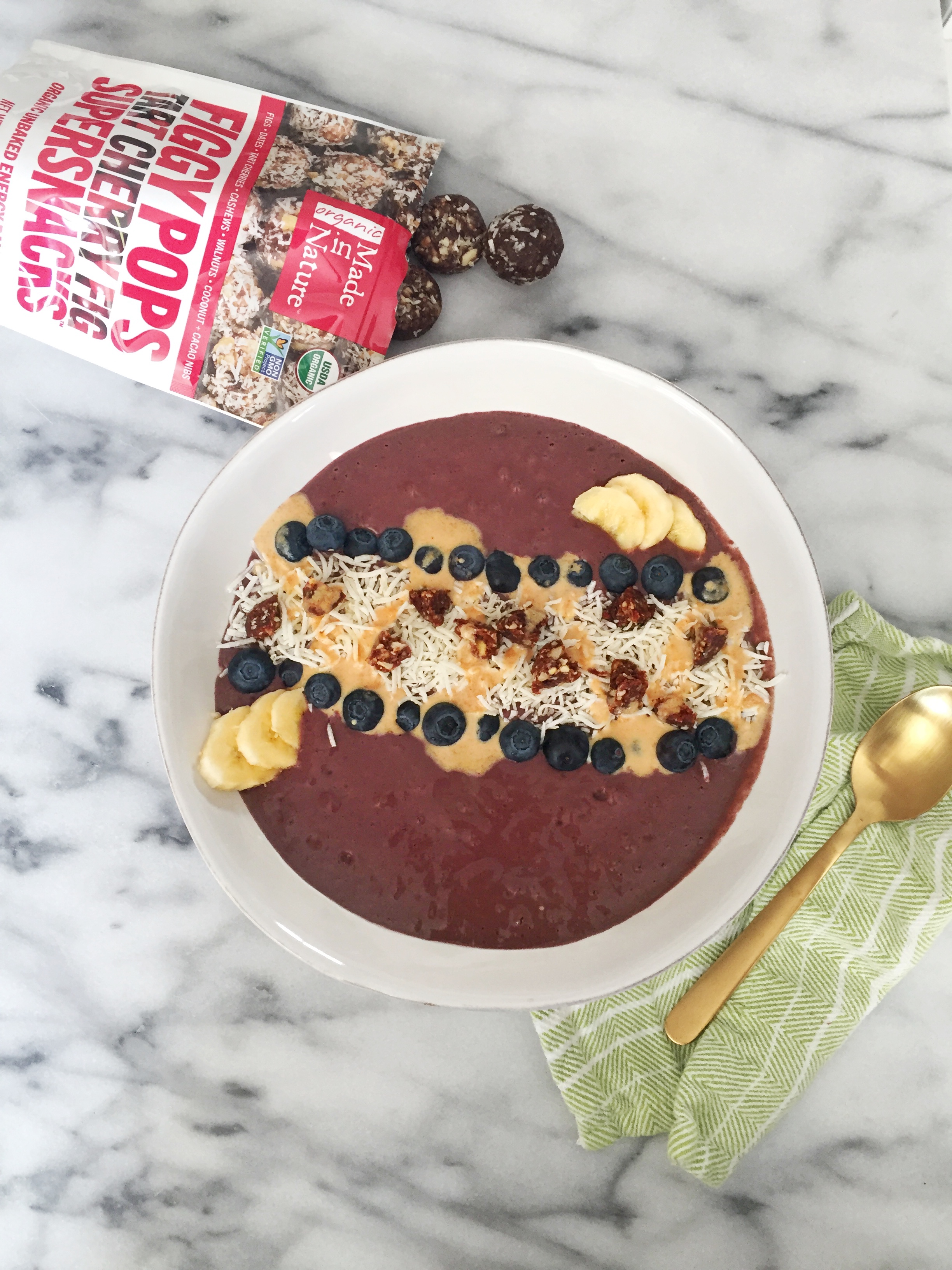the many personalities of fat

OMG remember the low-fat days? (We aren’t still in them...right?) Fat is NECESSARY for survival - don’t be afraid of it.
Some key responsibilities of fat include:
-
It assists with the absorption of fat-soluble vitamins (vitamins A, D, E, K). IE if you don’t have fat - how do you absorb these all-so-important vitamins?
-
It maintains healthy skin and cell membrane structure.
-
It acts as a source of energy.
That said, not all fats are created equal - some can positively impact your health while others can harm it. There are four different types of fat that can appear on a nutrition label: trans, saturated, polyunsaturated and monounsaturated. Basically, fat has many personalities.
Who are the two-faced fats?
Polyunsaturated Fats (Omega-6 & Omega-3) (e.g. - fatty fish, vegetable oils derived mostly from soy, corn, safflower and canola)
PUFAs are tricky. They can have certain health benefits such as anti-inflammatory properties and positive impacts on heart health, brain health, and cognitive function BUT they can also be dangerous. They tend to become oxidized or rancid when subjected to heat, oxygen, and moisture (typically from cooking and processing). Rancid oils are dangerous because they’re characterized by free radicals which attack healthy cells and cause damage to DNA/RNA strands.
Polyunsaturated fats can have a negative impact on our health when:
-
They are excessively consumed. Over-consumption of PUFAs is linked to cancer, heart disease, digestive disorders, weight gain, and damage to the liver, reproductive organs and lungs. Diets today contain up to 30% of calories as polyunsaturated oils, but scientific research indicates that it should not be much greater than 4%.
-
There is an imbalance of Omega-6 to Omega-3. Most commercial vegetable oils contain very little omega-3 (generally, the good omega) and large amounts of omega-6 (generally, the bad omega - but you need both. The issue comes in when you have a severed imbalance between 6 and 3. The ideal range is 1:1 - 4:1 but most typical American diets are around 10:1 - aka super-high in 6!) In addition, modern agricultural and industrial practices have reduced the amount of omega-3 in vegetables, eggs, fish and meat. The imbalance can result in increased tendency to form blood clots, inflammation, high blood pressure, irritation of the digestive tract, depressed immune function, sterility, cell proliferation, cancer and weight gain. Eating a whole foods diet naturally ensure a proper balance of the two.
Real-life examples of where to get this: Salmon. Or, a high-quality Omega supplement. You’ve probably heard of Fish Oil, but I like Ora Organics plant-based Omega 3 spray because it is derived from algae so we are cutting out the middle-man (AKA the fish, who eat the algae...). Also, if you want to save 10% use code JessicaBaum10.
Who are the misunderstood fats?
Saturated Fats (e.g. - coconut oil, palm oil, meat and dairy products)
Saturated fats have received a lot of negative attention due to outdated studies that attempted to blame them for obesity and heart disease. However, recent research has shown that this may not be the case, and that some forms of saturated fat are even beneficial to your health!
Saturated fats are required for the proper function of the liver, immune system, heart, lungs, hormones, and bones.
The trick is distinguishing the healthy forms from the not so healthy. Sorry, you do have to do some work here... :)
-
Healthy. Coconut oil is unique because it is made up of medium-chain fatty acids (MCFAs) as opposed to long-chain fatty acids (LCFAs). MCFAs provide the perfect source of energy because they only have to go through a 3-step process to be turned into fuel (others go through 26! Yes, TWENTY-SIX. Good heavens.) They are easier to digest, not readily stored as fat, antimicrobial and anti-fungal, smaller in size, and immediately converted to energy instead of being stored as fat. Coconut oil is also very nutritious and offers an exceeding number of health benefits. I use coconut oil in place of neosporin! Ghee, clarified butter, is also a nutritionally rich. The process of making ghee removes the water and milk protein/sugar, leaving, basically milk fat, and a high-smoke point oil that's great for cooking. The removal of lactose and casein (milk sugar and protein) can make ghee easier to digest than regular butter. It contains 25% medium and short-chain fatty acids, while regular butter only contains 10-15%.
-
Not so healthy. Beware of conventional meat and dairy products that are highly processed. These foods will do more harm than good. Yeah, so, eating a fatty steak every night might not be the best idea.
Real-life examples of where to get this: Add 1 tablespoon of coconut oil or coconut butter to your morning smoothie. Or, try a healthy energy bar/ball that you can either make yourself by processing some coconut, nuts, seeds and dates - or - by buying something already done for you. I like Made in Nature Mangoberry Figgy Pops - which have coconut oil and coconut.
Who are the villainous fats?
Trans Fats (e.g. - margarine and spreads, fried foods, baked goods, packaged foods)
If you ever track your food intake with a program such as cronometer.com (super fun to do once or twice just to get a baseline), you’ll notice small amounts of trans fats show up in your reading. This is either because the system is assuming trans fats based on some of your choices, thinking they are processed, but it is also worth noting that trans fats also occur naturally in some meat and dairy products. That said - most trans fats in our diets are in the form of artificial trans fats that are created in an industrial process by making liquid vegetable oils more solid. Ew, gross. Not only are there no known nutritional benefits of these fats, but they are known to increase your risk of developing heart disease, stroke, and diabetes. They can be hidden as “partially hydrogenated oils” on nutrition labels. Avoid these fats at all costs.
Real-life examples of where to get this: Well, Twinkies, probably :). Not going to give you healthy examples here because it’s not really possible.
Who are the friendly fats?
Monounsaturated Fats (e.g. - olive oil, nuts, avocado)
MUFAs are liquid at room temperature and will turn solid when chilled. They are nutritious, AND they have anti-inflammatory properties as well! Double-win. This is important because inflammation is at the root of most diseases. They protect against heart disease, improve insulin sensitivity, help your body use its fat properly, and strengthen your bones. They even assist in weight loss when consumed in moderation. Try to consume unprocessed MUFAs to get the full benefit of them.
Real-life examples of where to get this: Homemade trail mix. I like to use cashews, almonds and Made in Nature tart cherries (because they use apple juice to sweeten) + dark chocolate, of course. Another example is to make some homemade guacamole with carrot sticks as a snack.
Can we review all of this one last time?
A diet high in healthy fats is associated with healthy weight.
Low-fat diets could be dangerous and are generally unhelpful.
All three types of healthy fats (saturated fat, monounsaturated fat and polyunsaturated fat) can be consumed regularly, though research does indicate that it’s healthiest to consume less saturated fat than the other two types. Well, and then be mindful of the difference between a steak and a tablespoon of coconut oil.
Trans fat should be be avoided at all times and will soon be eliminated from all processed food in the U.S. (Yay!)
Want a discount on some of the #snacks mentioned here? Click on the links and use code GOOD at checkout for $10 off a purchase of $50. Sa-weet. (No, this is not an affiliate link and I dont make money if you buy these - haha! - Made in Nature is just an amazing partner and sponsor of our GOOD Festival so I want to spread the love).
Sources:
https://www.westonaprice.org/health-topics/know-your-fats/the-skinny-on-fats/

